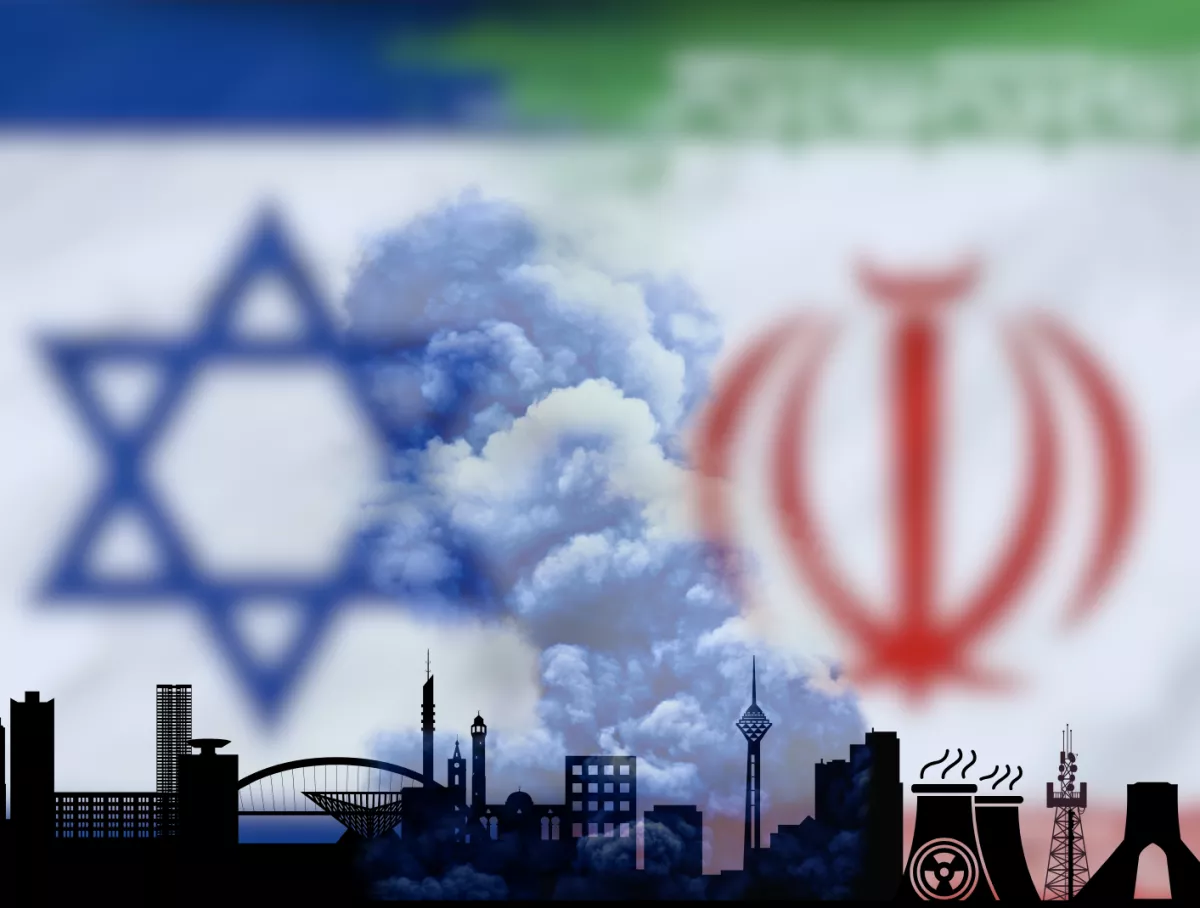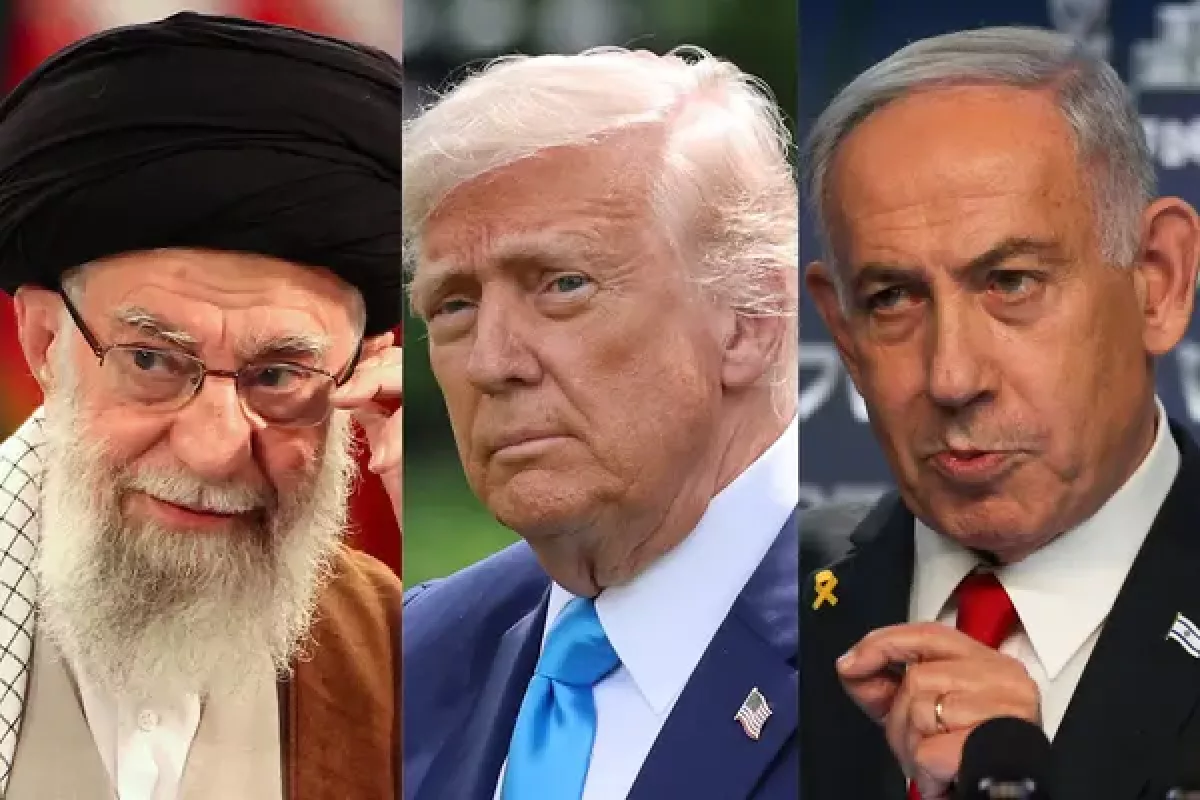Iran after the 12-day war Public opinion turns against leadership
When discussing the question of how Iranians view their own government and its war with Israel, many participants in the debate rely on personal sympathies, antipathies, and established stereotypes. Some believe that Iranians hate their government so much that they wish it defeat, and hope for victory for Israel and the United States, which together attacked Iran during the 12-day June war. Others, on the contrary, assume that in a war with Israel, every Iranian should rally around their government, because it is “their own.” However, reality, as always, is more complex and far more interesting than these stereotypes.
In the Middle East, populations do not always support their governments when they enter into military conflict.

For example, in 1991, Iraq lost the war in Kuwait against the international coalition led by the United States. The Americans bombed Iraq, the central government was weakened, it lost control over the country, and its military and administrative apparatus functioned poorly. One would think that society would rally around the flag and Saddam Hussein—but this did not happen.
On the contrary, a large-scale uprising against Saddam began, spreading across almost all regions of the country except the capital. In the south, the Shiites revolted, while in the north the uprising took on the character of a social revolution, uniting Kurds, Arabs, Turkic-speaking populations, Shiites, and Sunnis. The driving force was tens of thousands of deserting soldiers, who were joined by the local population. During this uprising, which came to be known as the “Intifada Shaabaniya,” rebels seized cities, formed armed militias, and established workers’ councils within labour collectives. The revolution was eventually suppressed by units of the Republican Guard, which remained loyal to Saddam—smaller in number but better armed.
The reasons behind these events were diverse. The masses were outraged by military losses and the economic crisis, while the Shiite majority protested discrimination by Saddam Hussein’s ruling Sunni Tikriti clan (he came from the Sunni tribes of the city of Tikrit). Equally important was the fact that Saddam had lost to the Americans. Iraqis do not respect weak rulers and tend to support the victors.
These events bear some resemblance to the story of Libya. In 2011, several regions in Libya rose up against Muammar Gaddafi. The rebels accepted assistance from foreign military forces and achieved victory. However, not everyone supported them—regions inhabited by tribes loyal to Gaddafi resisted.
Of course, such examples cannot be considered universal. Sometimes, populations do indeed rally around the flag in the fight against a foreign adversary. Much depends on the level of prosperity, ethno-religious composition, and the persuasiveness of state ideology.

This should be kept in mind when discussing Iranians’ attitudes toward armed confrontation with the United States and Israel. Part of the population is frustrated by the dire state of the economy, participates in strikes, and does not wish to support the leadership of the Islamic Republic. Others are dissatisfied with ethnic discrimination. Yet there are also those who support the government.
GAMAAN — the Group for Analyzing and Measuring Attitudes in Iran, registered in the Netherlands — studies Iranians’ views on social and political issues, conducting anonymous online surveys through various digital channels.
The survey “Iranians’ Attitudes Toward the 12-Day War” was conducted in Iran from 24 to 28 September 2025 and covered 30,372 respondents aged 15 and older.
The question: “Which option comes closest to your political orientation?” revealed that 41.3% supported a change of government as a precondition for reform. A further 21.2% favoured a structural transformation and transition from the Islamic Republic to another form of government, 12.5% supported gradual reforms, and 11.8% wanted to preserve the principles of the Islamic Republic and the Supreme Leader. The option “None of the above” was chosen by 13.2%.
After the 12-day war, the share of those supporting the “overthrow of the Islamic Republic” increased by 6% compared to last year, while support for “structural transformation” fell by 3%. The proportion of reformists and defenders of the current system remained unchanged. This indicates a radicalisation of opposition sentiment.
44% of respondents consider the Islamic Republic responsible for starting the war with Israel, 33% place the blame on Israel, and 16% believe both sides share responsibility.
More than half of respondents (51%) are convinced that Israel succeeded in the 12-day war, 16% believe Iran achieved more, and 19% think that neither side accomplished its objectives.
Among emotional reactions, “anger at the Islamic Republic” predominated (42%), while “anger at Israel” was felt by 30%.
73% of Iranians said they were deeply concerned about civilian casualties. The least emotional impact was caused by the attack on the state broadcasting company (IRIB)—only 15% condemned it.
63% believe that the 12-day war was a conflict between Israel and the Islamic Republic, not the Iranian people, while 30% disagreed. 33% viewed the war as a “national–patriotic” conflict, but 52% rejected this characterisation.

34% of respondents think the Islamic Republic was able to protect the population from Israeli attacks, whereas 58% believe it was not.
The actions of Supreme Leader Ayatollah Ali Khamenei during the war were viewed positively by 27% of respondents and negatively by 58%.
The majority (69%) believe that “the Islamic Republic should stop calling for the destruction of Israel,” while 20% disagreed.
62% think Iran should engage in direct negotiations with the United States to resolve disputes, while 22% are opposed.
Regarding the nuclear program, 49% oppose developing nuclear weapons, 36% support it, and 15% were unsure.
The main source of news for Iranians is social media (51%). The opposition TV channel Iran International is used by 43%, the state broadcaster IRIB by 27%, and BBC Persian by 9%.
Iranians view the United States most positively (53% positive vs. 37% negative), while Israel received 39% positive and 48% negative assessments.
When asked about the war’s impact on households, 56% said it affected them “very much” or “somewhat,” while 39% said it had little effect.
Regarding the water and electricity supply crisis, 75% cited ineffective domestic management as the cause, 14% pointed to natural factors, and 4% blamed foreign sanctions.
Overall, the survey results demonstrate widespread dissatisfaction among Iranians with the government’s policies. The majority view it as ineffective in both domestic and foreign affairs, responsible for a deep crisis, and unable to protect the country from Israeli strikes. Many blame the supreme leadership for starting the war, or see both sides as equally responsible. At the same time, most Iranians express sympathy for the United States, despite its involvement in bombing Iran.
These findings are corroborated by other data. Economists estimate that 65–70% of Iran’s population suffers from hyperinflation. According to official sources, around 70% of citizens support the separation of religion and state.
The support base for the Islamic Republic’s highest spiritual leadership is shrinking year by year. Therefore, if the country’s security and administrative apparatus were to suffer severe external blows and temporarily cease functioning, it could lead to events reminiscent of Iraq and Libya. This is precisely the scenario that Iran’s leadership fears the most.








